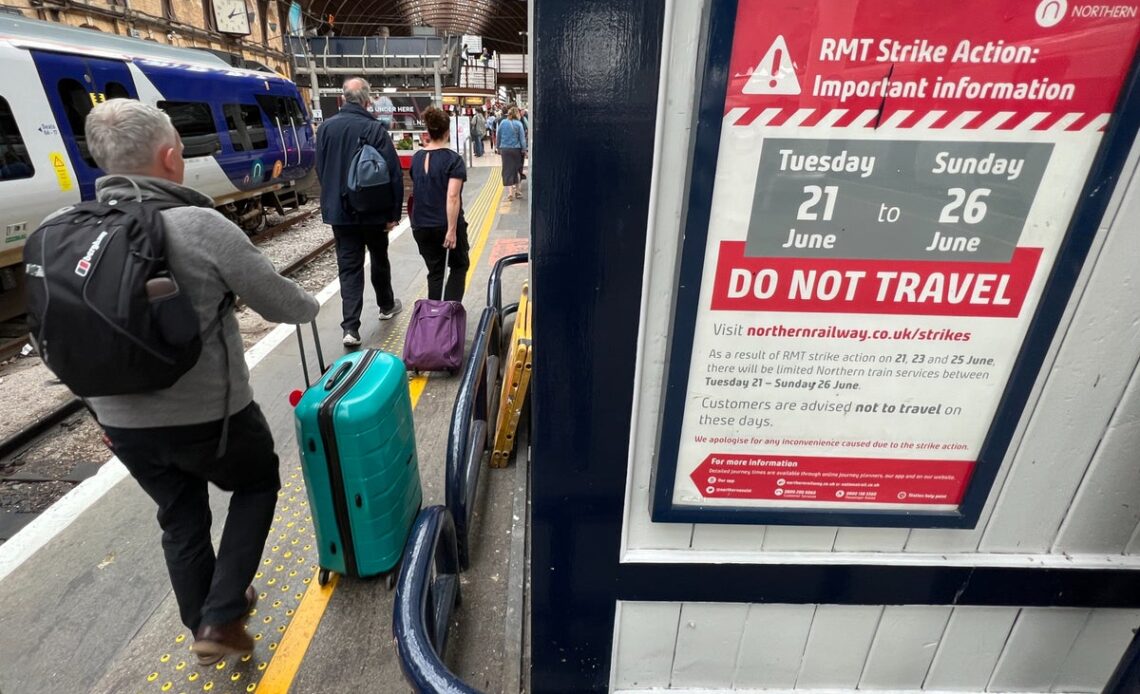The biggest national rail shutdown for three decades is now inevitable as talks have failed and it is too late to roster crews to cover services.
Cancellations will be felt first at Fort William station in western Scotland at 7.50pm on Monday.
Ahead of disruption set to last almost a week, the Caledonian Sleeper from the bleak West Highland terminus to London Euston has been axed – the first of around 15,500 trains cancelled on the initial day of industrial action.
Members of the RMT union working for the infrastructure provider Network Rail and 13 train operators voted 8:1 in favour of striking in a dispute over pay, jobs and working conditions. Around 40,000 workers are expected to walk out on 21, 23 and 25 June.
They will be joined on the first day of action by colleagues working for London Underground, effectively shutting down the Tube network in the capital.
The RMT says it is “available for discussions that will settle this dispute and ensure our transport system can operate without disruption”. But in the vanishingly unlikely event of a successful conclusion to talks, it is now too late to roster crew to cover services on Tuesday.
Across Great Britain, all but 4,500 of the normal 20,000 daily trains have been axed. More than half of the route network is closed because Network Rail signallers are walking out. Even on lines with signalling covered by management and non-union staff, far fewer trains than normal will run.
As millions of commuters, students with exams and leisure travellers seek alternative forms of transport, the industrial action now tops the political agenda.
“We call on the entire labour movement and the working people to rally to the support of the RMT and our members in this struggle,” the union says.
Ministers say that after £27bn was pumped into the rail industry during the coronavirus pandemic, efficiencies are needed to staunch losses. Network Rail and the train operators are seeking to link pay settlements with higher productivity.
The latest figures from the Office of Rail and Road, for the year to March 2022, show fare revenue at £5.9bn – barely half the £11bn earned before the Covid crisis. Journeys using season tickets fell by 72 per cent in the same spell.
The transport secretary, Grant Shapps, sought to blame Labour for the strike, tweeting: “Keir Starmer has spent 11 days refusing to condemn the rail strikes.
“On…
Click Here to Read the Full Original Article at The Independent Travel…
